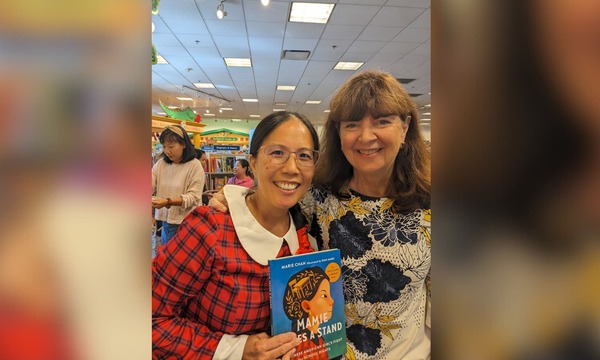Pushing against the standard brick and mortar classroom, Biola’s first annual Imagination Summit on Friday, March 12, 2010 validated the future integration of technology into higher education at Biola University. With 51.2 percent of college students in the United States having smart phones in the United States and the rate going up by the minute, the traditional way of learning is changing with emerging new technology — a change Biola is seizing.
“Things are changing in the world of higher education. Technology is important, it’s important we think about pondering the future,” said Biola president Barry H. Corey.
Corey encouraged faculty, students and staff in attendance that the university is harnessing new technology as leadership thinks about the future of Biola. He emphasized the endless potential as Biola continues to provide technological deliveries like the recent launch of the “Biola Mobile” iPhone app.
Rooted in one of the 12 initiatives in Biola’s new strategic plan — to apply advanced media and technology in order to better serve our worldwide constituency, improve student services, streamline administrative processes and enhance the value and delivery of a Biola education — the summit explored the use of new technology and media in higher education — a pressing question amongst educators. The one-day event addressed the question, to the hundreds in Sutherland Auditorium and on the Twittersphere, of how Biola can fertilize its imagination as a university on how to utilize new media and leading technology to better serve Biola students and constituents.
Featuring speakers such as nationally syndicated radio show host Hugh Hewitt and founder of Global Media Outreach Walt Wilson, the day spotlighted how technology is being used in three different areas: education, evangelism and business.
“The Internet is not a replacement, but a communication platform,” said Wilson. “We need to add it to everything we do as Christians. Technology is here to serve us.”
Hosted in a transformed Sutherland Auditorium, reflective of an Apple product release event, the conference also focused on the opportunities made possible by iTunesU — an online resource created by Apple for students to gain access to university material including lectures, classes, chapel services and more. Biola faculty members left impressed and excited about the school’s future as the landscape of higher education changes, opening new doors for learning opportunities and teaching techniques.
Biola is among many universities wrestling with the idea of integrating technology into the classroom. How should they do it and what content should they give the external community for free? An article written by Jeffrey R. Young in The Chronicle of Higher Education titled, “College 2.0: More Professors Could Share Lectures Online” explores the idea of whether or not uploading content to the Internet will violate the classroom experience. Speakers at the Imagination Summit challenged the argument of technology taking away from the classroom experience and suggested redesigning the lecture hall as a place for more student engagement, less professor to student lecturing. Professors were provoked to imagine the possibilities of innovatively teaching using technology for future generations of students.
“Today was an amazing day of learning how ministry can be enhanced by technology, but at the same time thinking how we as a university can take what we have here — knowledge of not only the truth of God, but also the truth of academics — and make it accessible to the whole world,” said David Kheen, associate professor in the Department of Christian Education.
Read President Corey's message.
Written by Jenna Bartlo, Media Relations Coordinator. Jenna can be reached at (562) 777-4061 or through email at jenna.l.bartlo@biola.edu.
 Biola University
Biola University.jpg)
_(1).jpg)

.jpg)